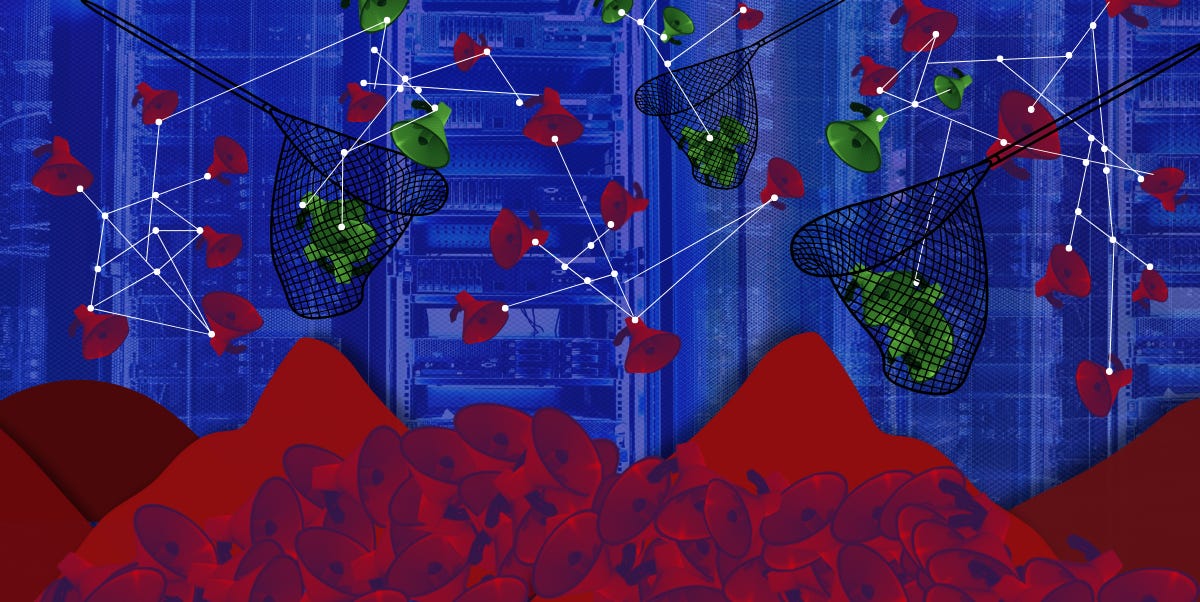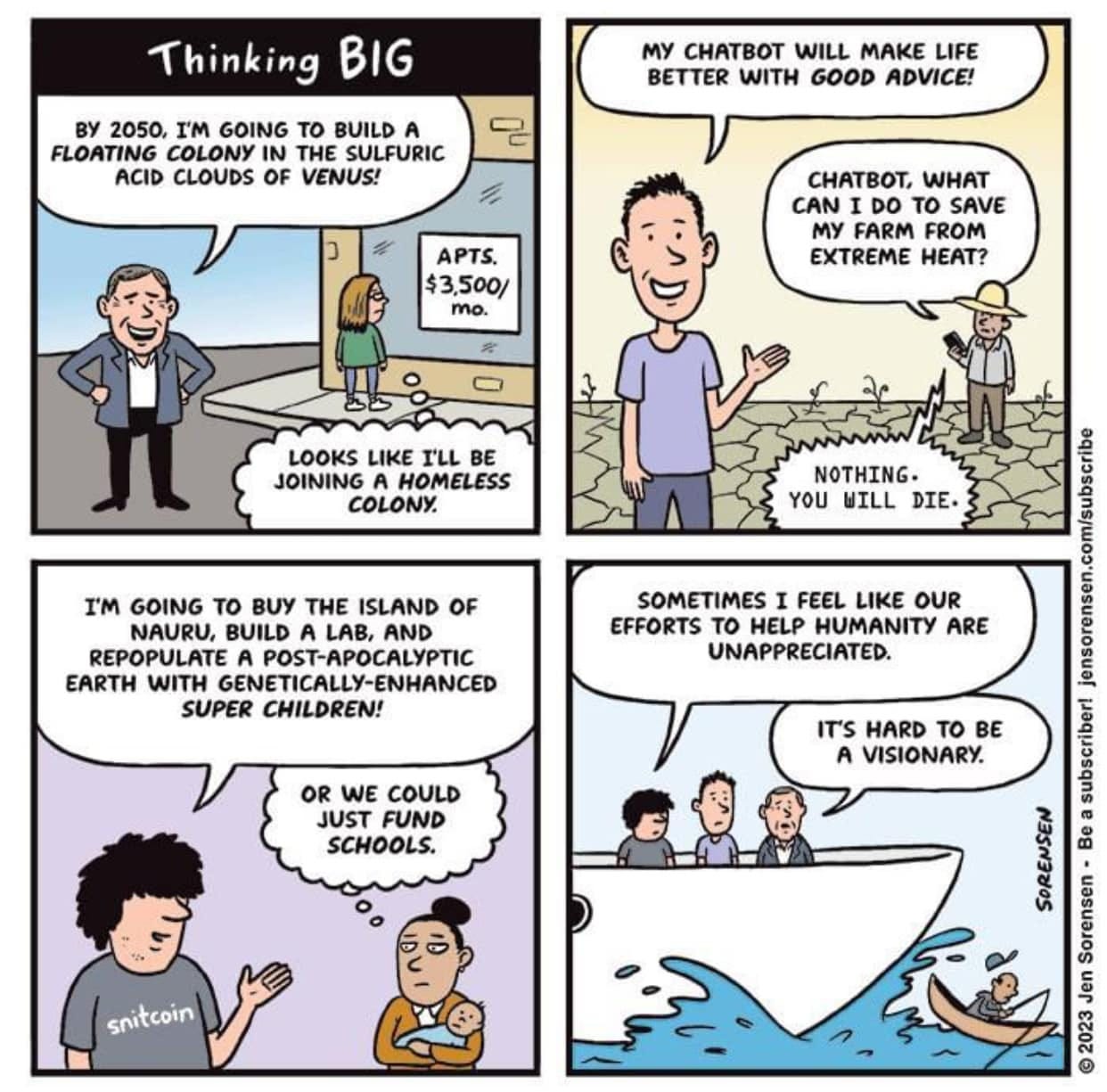The Circuits of Information in the Year of Elections
Dear Reader,
As 2024 draws to a close, we cannot but concede that it's been an intense year, punctuated by high moments for geopolitics. From the outset, it was billed as a critical juncture; a ‘historic’ year of elections, with more than 70 countries and 2 billion people said to be going to the polls. Now, looking back, one is struck by the profound crisis for democracy that the outcomes represent. As has now been widely reported, results have largely gone against incumbents across the globe. Yet, as analysts have noted, this fact represents a widespread sense of anger and discontent with the status quo, rather than a vote of confidence for alternative candidates and brands of politics. In fact, polls in over 24 countries indicate a widespread lack of belief amongst common people in the potential of the electoral process to make a difference to their lives. Many voters report feeling that none of the available candidates adequately represent their needs and this malaise has manifested in some key elections this year seeing their lowest voter turn-out in decades.
Commentators have traced this mass disillusionment to the multiple global processes engendering chaos and uncertainty today: a spiraling cost of living crisis, the impending dangers of unsustainable debt, recurrent climate breakdowns, and genocidal wars presaging an increasingly volatile geopolitical order. Yet, many concur that the ways in which these processes are being represented and understood may themselves be contributing to the growing instability. What cannot be ignored is the impact on our democracies and societies of an increasingly toxic digital public sphere. The disruptive processes are now familiar: the proliferation of echo chambers and runaway conspiracies, the barrage of mis/disinformation, cascading waves of online abuse and political polarization, the ubiquity of content harmful to children and young adults, the deleterious effects on mental health, and more. Such dynamics are compounded by the more direct political abuses of the digital medium by a host of actors. The internet shutdowns of authoritarian states, the weaponization of moderation policies by Big Tech overlords, and the various attempts to manipulate public sentiment on social media.
The corrosive influence of these dynamics on our political systems may be reaching a tipping point. According to a recent V-Dem Report, over 45 countries have experienced a decline in election integrity since the year 2000, largely owing to the effects of online activity. Indeed, even the World Economic Forum, of all organizations, is alarmed. It has defined disinformation as the biggest near-term risk to global stability that humanity faces today.
Given the extent and complexity of our troubles, fixing our digital public sphere alone is unlikely to save the day. However, given its centrality to so much of our shared institutional infrastructure today, it seems that doing so is now a necessary condition to deal with many of the other problems too. This year has shown signs that this fact is being countenanced across the world of policy-making and governance; as also by ordinary people. There is a burgeoning and clear appetite to make a change.
For instance, one can glean such motivations from the large exodus from the X platform that has been ongoing over the last couple of years, and which has accelerated since the re-election of Donald Trump. Parallelly, it is visible in the wave of litigation against social media companies. This month, the US Supreme Court approved a multi-billion dollar lawsuit against Meta for its association with the Cambridge Analytica scandal. The company has already paid billions in fines and settlements over this issue and this additional case signals the growing hostility over their mode of operations. Similarly, at the multilateral level, we have seen increasing engagement with these problems under the banner of ‘information integrity’. A few months ago, the UN released a set of principles to guide action within the field. Relatedly, this year’s G20 under Brazil’s presidency had declared Information Integrity to be one of its key agenda items, culminating in the launch of the ‘Global Initiative for Information Integrity on Climate Change’ last month.
There is some promise in these various developments, but a lot remains to be accomplished. Moreover, as is often the case, inadequate or half-baked solutions risk making the situation far worse. Breaking open the stranglehold of today’s giant corporations and dispelling the miasma around our digital commons will require radical steps.
Thus, seeking to further this discussion in its own way, DataSyn brings you a year-end special edition this month. From surveying current frameworks to critiquing the silences of prevailing discourse and offering new visions for the way ahead— we bring you a range of analyses on the state of play in this battle for our digital public sphere.
The DataSyn Team
DIGITAL DISSENT
The Year Big Tech Came for Democracy
Deepti Bhartur
This year has demonstrated digital media’s unprecedented centrality as a medium through which ordinary people access information and form their political views, with many candidates tailoring their campaigns in acknowledgment of the fact. Consequently, Big Tech’s worrying influence over electoral processes and outcomes has only grown more powerful. Deepti Bharthur examines this juncture through a wide-ranging analysis of how democracy and technology intersected in 2024.
Read on.
THE POLICY TABLE
UN Global Principles on Information Integrity: A Missed Opportunity
Merrin Muhammed Ashraf
Earlier this year, the UN Secretary-General (UNSG) introduced the UN Global Principles on Information Integrity, a new framework designed to guide multistakeholder action towards renewing our digital public sphere. Merrin Muhammed Ashraf brings a critical lens to bear on this initiative— pointing out where it falls short in amounting to an effective intervention and the broader problems with current multilateral discussions on the subject.
Read on.
THE NEW DIVERGENCE
A ‘How-To’ Guide to Transforming the Media and Information Ecosystem
Seán Ó Siochrú
While diagnostics abound with respect to the many ailments of our social media landscape, there is a significant deficit of comprehensive and imaginative proposals to address these problems. Drawing on the work of the recently established ‘Information Integrity, Interoperability and Media Plurality’ (I3MD) Working Group, Seán Ó Siochrú takes a stab at the outlines of a bold and concrete action plan.
Read on.
THE BIG EXCESS
The Human Experience of Information Integrity in 2024
Christophe Gauthier
How has social media become entangled with politics and democracy over the last year? What are the ways in which today’s circuits of disinformation are related to wider institutional and infrastructural inequalities in the Global South? What does the anguished state of climate discourse today reveal about the potency of social media’s distorting powers? Christoph Gauthier engages with and tries to shed some light on these pressing questions.
Read on.
FEMINIST DIGITALITY
Gendering Information Integrity: Lessons from Feminist Scholarship to Media Policy
Yasmin Curzi
While the growing acknowledgment and engagement with ‘information integrity’ as a governance issue appears promising, what are the dangers we must confront at the level of even formulating the problem? Yasmin Curzi takes issue with some of the presuppositions underlying the mainstream discourse, arguing that they remain blinkered in scope. Instead, she argues, we must attend to feminist and Southern perspectives to frame our discussions more effectively.
Read on.
The Sins & Synergies Lounge
In taking stock of important interventions in the information integrity debate, we wanted to throw the spotlight on this report of the Digital Economy Working Group under the Brazillian Presidency of G20 on possible approaches to promoting information integrity and trust in the digital environment. Also worth exploring is the Carnegie Endowment’s latest publication which offers a high-level, evidence-informed guide to some of the major proposals for how democratic governments, platforms, and others can counter disinformation.
Similarly, tracking civil society’s crucial engagement with these problems, we’d recommend this report by the Engine Room which brings together insights inspired by the strategies used by civil society organizations, journalists, and activists to create more balanced creation, exchange, flow, and use of information in Latin America. Also, don’t miss this policy brief by IT for Change and the UWA Tech and Policy Lab and Tech-Crimes Coalition which seeks to contribute a concrete action plan for regulating social media that creates a safer and more equitable experience for women and girls, to the digital transformation agenda of G20 2024.
The question of social media and its alarming impact on democracy has also been the subject of some timely scholarly interventions. Check out Robert Gorwa’s insightful reflections on Jacobin, as he reviews two important new books that deal with precisely this set of issues.
With another spate of users leaving the platform X this year, read this forward-looking exploration of the promise of a ‘decentralized network’ on Bluesky, a widely discussed alternative to X. As we search for better online publics and platforms, be sure to listen to this conversation between Jenny Odell and Nathan Schneider on critical thinking in the digital age and preserving the values endangered by the attention economy.
On the subject of creative resistance and the artistic exploration of technology, we would be remiss not to mention Kate Crawford and Vladan Joler’s awe-inspiring visualization of technology and power since 1500 and their powerful anatomical case study of the Amazon Echo as an artificial intelligence system made of human labor. Also explore this simple street-based game, ‘How (not) to get hit by a self-driving car’ that highlights the problem of geographical bias in AI data collection, while advocating for more inclusive and ‘playable’ cities.
Tune into this thoughtful lecture by Andrés Burbano on his latest book, Different Engines: Media Technologies from Latin America, which investigates the complex and sometimes unlikely conditions under which technological and artistic innovation is possible and the problematic logics under which these innovations may come to be devalued as historically irrelevant.
Finally, be sure to check out this fascinating special issue of the Boston Review journal. Evgeny Morozov provides the framing essay, raising key questions about the alternative, progressive AI agenda that we need to bring to life, with lively responses from Brian Eno, Audrey Tang, Sarah Myers West, Wendy Liu, and Edward Ongweso Jr, amongst others!
Post-script
DataSyn is a free monthly newsletter from IT for Change, featuring content hosted by
Bot Populi. DataSyn is supported through the Fair, Green, and Global Alliance.
Liked what you read? To have such concise and relevant analysis on all things Big Tech delivered to your inbox every month, subscribe to DataSyn!




